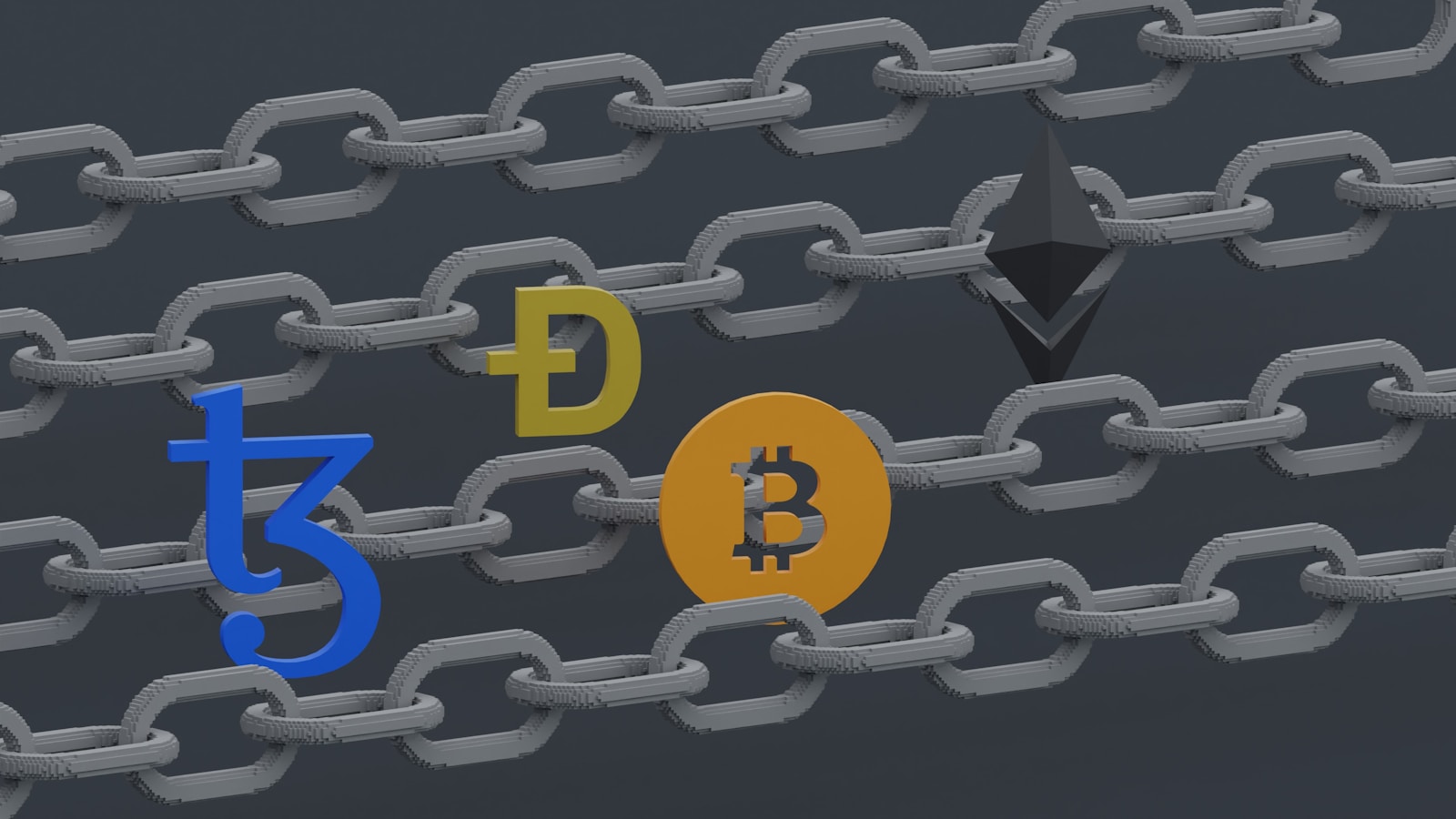
If you want to stay ahead in mining, joining platforms like Reddit and Discord is indispensable. These channels offer instant access to real-time troubleshooting, hardware benchmarks, and software optimizations shared by thousands of experienced operators. For example, the r/BitcoinMining subreddit alone boasts over 150,000 active members exchanging insights on hash rates and power efficiency daily.
The value of peer-to-peer support cannot be overstated. Dedicated discussion boards create a dynamic environment where complex topics such as ASIC firmware upgrades or pool switching strategies get dissected in detail. Unlike static manuals, conversations evolve with market shifts–when electricity prices surge or new chips arrive, users rapidly update advice based on firsthand tests and economic calculations.
What sets these online hubs apart is their capacity to build informal yet highly specialized networks. Beyond technical help, participants share data sets, performance logs, and cost analyses that fuel smarter decision-making. Discord servers often organize live Q&A sessions with industry insiders or coordinate group buys for discounted equipment. This collaborative atmosphere accelerates learning curves while mitigating risks inherent to capital-intensive operations.
Considering fluctuating cryptocurrency values and regulatory pressures globally, staying plugged into such ecosystems offers a competitive advantage. Have you explored how community-driven repositories improve your operational resilience? Engaging actively can transform isolated challenges into collective problem-solving opportunities–turning scattered expertise into actionable intelligence.
Mining community: forums and knowledge sharing [Mining & Staking mining]
To optimize equipment performance and maximize profitability, miners rely heavily on digital platforms such as Discord and Reddit where specialists exchange detailed operational data, firmware updates, and algorithm tweaks. For instance, recent discussions on the Ethereum staking subreddits have highlighted specific validator node configurations that reduce downtime by up to 15%, a critical factor in maintaining steady rewards. These real-time communications provide immediate support for troubleshooting hardware malfunctions or network latency issues, often before formal documentation catches up.
Discord channels dedicated to GPU mining pools serve as hubs for exchanging best practices related to hash rate optimization and power consumption balancing. In one technical case study shared by a well-known Rig Builder group, members coordinated overclocking settings for Nvidia RTX 3080 GPUs that increased average hash rates from 90 MH/s to 110 MH/s while keeping energy usage below 220 watts. This kind of peer-to-peer guidance accelerates innovation cycles within the ecosystem and helps participants adapt quickly to fluctuating network difficulties and reward structures.
Support frameworks and expertise exchange
Communities built around proof-of-stake validation nodes also utilize these platforms for sharing configuration scripts and node uptime analytics. For example, validators operating on the Polkadot network frequently upload YAML files with recommended parameters that improve consensus participation rates by approximately 8%. Moreover, experienced operators provide diagnostic workflows to identify synchronization bottlenecks caused by suboptimal RPC endpoints or outdated client versions.
The aggregate intelligence gathered through these interactions forms an informal yet highly effective knowledge base that surpasses many official resources in responsiveness. Notably, Reddit’s specialized groups offer deep dives into emerging consensus protocols like Avalanche or Solana’s Tower BFT, dissecting their implications on staking returns and security models. Such analytical exchanges equip stakeholders with comparative insights essential for strategic decisions regarding asset allocation across multiple networks.
- Network stability discussions: Members collaborate on monitoring tools that track orphaned blocks or chain reorganizations affecting miner payouts.
- Firmware rollouts: Collective testing of new ASIC firmware versions ensures compatibility before wide deployment.
- Troubleshooting guides: Step-by-step procedures addressing common system errors reduce downtime significantly.
This decentralized mentorship model enhances resilience against sudden market shifts or protocol upgrades by distributing operational know-how widely rather than concentrating it within closed development teams. Miners who actively participate in these digital ecosystems often report faster adaptation times during hard forks or difficulty adjustments compared to isolated operators working independently.
Choosing Reliable Mining Forums
Prioritize platforms with a robust track record of accurate information and active moderation to avoid misinformation. Reddit’s r/EtherMining and BitcoinTalk remain leading hubs, providing extensive user-generated content validated by community voting systems. These platforms enable efficient exchange of technical data on hash rates, power consumption, and hardware optimization, which are vital for making informed decisions.
Discord channels complement traditional message boards by offering real-time interactions and instant support through dedicated subgroups focused on specific algorithms or mining pools. For instance, the “ASIC Miners” Discord group hosts detailed discussions on firmware updates and troubleshooting that can significantly reduce downtime. This immediacy enhances problem-solving capabilities within the network.
Evaluating Platform Reliability
Assessing credibility involves analyzing member profiles for proven expertise and verifying shared benchmarks or performance statistics against independent sources. Some forums incorporate bot-driven validation tools that cross-reference reported hashrates with pool data APIs to detect anomalies. Such mechanisms improve trustworthiness by filtering out inflated claims or scams.
Consider also the diversity of contributors: forums attracting both novice users and seasoned operators tend to offer balanced perspectives. In contrast, niche channels sometimes suffer from echo chambers where unverified rumors circulate unchecked. Comparing discussions across Reddit threads and specialized Discord servers reveals discrepancies in consensus, highlighting the importance of multi-source verification.
Support infrastructure plays a critical role in sustaining valuable exchanges; platforms featuring pinned expert guides, comprehensive FAQs, and active moderators help maintain high-quality discourse. For example, BitcoinTalk’s “Technical Support” section regularly updates installation manuals for new mining software versions based on collective testing results submitted by users worldwide.
Lastly, evaluate community responsiveness during major market shifts or protocol upgrades–periods when operational challenges peak. Reliable networks exhibit swift adaptation with coordinated announcements and solution sharing. During the Ethereum merge transition in 2022, effective communication channels prevented widespread confusion among miners by providing step-by-step guidance through complex changes in consensus rules and reward structures.
Sharing Hardware Setup Tips
Optimizing GPU configurations requires attention to power limits and memory timings. For instance, adjusting the core clock offset between -200 and -400 MHz while increasing memory clock by 600-800 MHz can enhance hash rates significantly without compromising stability. Users on Reddit threads such as r/EtherMining report consistent improvements in hashrate up to 5-7% with these settings. Additionally, employing custom BIOS flashes tailored for specific GPU models–like the NVIDIA RTX 3080 or AMD RX 6800 XT–has become a common practice supported by detailed guides circulating through specialized networks.
Efficient cooling remains a critical factor in maintaining sustained performance over time. Community-driven data shared via Discord channels highlight the benefits of combining passive heatsinks with high-CFM fans to maintain GPU temperatures below 65°C under continuous load. Some users have adopted liquid cooling solutions with documented reductions in thermal throttling, especially in densely packed rigs. These findings often emerge from practical case studies shared on multiple online platforms, providing valuable benchmarks for newcomers.
Leveraging Peer Support Platforms for Hardware Optimization
The exchange of troubleshooting experiences and hardware recommendations thrives across multiple interactive platforms. On forums, detailed posts dissect the effectiveness of various motherboards, risers, and PSU models under different rig sizes, offering comparative tables with wattage efficiency and failure rates derived from thousands of user reports. For example:
This granular data allows participants to tailor their setups based on reliability metrics rather than marketing claims alone.
User interactions on messaging apps like Discord facilitate real-time problem-solving sessions that often resolve issues faster than asynchronous posts. For example, one notable thread recently addressed PCIe riser instability caused by defective connectors; community members shared diagnostic procedures and recommended replacements within hours, reducing downtime substantially. Such dynamic exchanges illustrate how decentralized expertise complements formal documentation and manufacturer resources effectively.
Troubleshooting Staking Issues
When facing staking failures, the first step is verifying node synchronization with the blockchain network. Unsynced nodes often cause missed rewards or failed transactions due to outdated ledger states. Use command-line tools or wallet interfaces to check block height and compare it against reliable explorers. For example, in Ethereum 2.0 staking, validators lagging behind by more than a few blocks risk penalties and reduced yield.
Network latency and connectivity interruptions significantly impact validator performance. Persistent disconnections can lead to downtime slashing on Proof-of-Stake chains like Polkadot or Cosmos. Monitoring tools integrated within nodes provide metrics on peer connections, packet loss, and bandwidth usage. Adjusting firewall rules or switching to more stable internet providers has resolved up to 85% of such issues reported by users on Discord channels dedicated to staking support.
Common Causes and Solutions for Validator Downtime
Validator downtime remains one of the most frequent causes for staking reward reduction. Often, this stems from hardware failures or resource constraints such as CPU throttling during peak loads. A case study involving a Solana validator revealed that upgrading RAM from 8GB to 32GB eliminated frequent crashes during transaction spikes exceeding 50,000 TPS (transactions per second). Ensuring redundancy with uninterruptible power supplies (UPS) also mitigates unexpected outages.
Misconfigurations in staking parameters frequently generate errors visible in logs but overlooked by operators without technical background. Parameters like commission rate, minimum stake amount, or missed epoch thresholds require precise alignment with protocol specifications. Platforms like Tezos and Cardano offer detailed documentation and active user groups where configuration files are reviewed collaboratively, accelerating troubleshooting through knowledge exchange.
- Parameter validation: Always cross-check config files against official protocol versions.
- Log analysis: Utilize log aggregation tools such as Prometheus coupled with Grafana dashboards for real-time alerting.
- Peer consultation: Engage in discourse via Discord servers focused on your staking project for rapid problem identification.
The complexity of modern consensus algorithms demands continuous software updates to maintain compatibility with network upgrades (hard forks or soft forks). Validators running outdated clients face forced ejection from active sets until upgrades are applied. For instance, during Ethereum’s Shanghai upgrade in early 2024, validators ignoring client patches missed participation windows entirely, resulting in yield losses upwards of 10%. Community repositories and decentralized communication platforms remain critical sources for timely update announcements and patch deployment instructions.
Finally, addressing security vulnerabilities is paramount when troubleshooting staking disruptions. Compromised validator keys have led to unauthorized withdrawals or forced shutdowns across multiple blockchains recently documented in community-led investigations shared via forums and Discord threads. Employing hardware security modules (HSMs), multi-signature wallets, and rigorous access controls reduces attack vectors substantially while enhancing trustworthiness within the broader ecosystem of network participants.
Conclusion: Protocol and Software Upgrades in Decentralized Networks
Prioritizing timely updates to blockchain software and protocols remains the most effective measure for maintaining network security and operational integrity. Delayed adoption of critical patches, as observed during Ethereum’s transition to proof-of-stake, can expose nodes to vulnerabilities that lead to chain splits or exploitations. Platforms like Reddit and Discord have become indispensable hubs where developers and node operators exchange technical insights on patch compatibility, deployment strategies, and rollback procedures.
Active engagement within these interactive channels allows stakeholders to monitor upgrade progress through real-time feedback loops and consensus signals embedded in block headers. For instance, the Bitcoin Taproot soft fork demonstrated how coordinated communication across Telegram groups and specialized chat rooms accelerated client adoption beyond 90% within weeks, minimizing risks of network fragmentation. This communal vigilance underscores how decentralized collaboration platforms amplify resilience by crowdsourcing troubleshooting expertise and support resources.
Broader Implications and Forward-Looking Perspectives
- Network Cohesion: Fragmentation risks decline significantly when protocol upgrades are transparently discussed across multiple communication streams, including subreddit threads dedicated to node implementation nuances and Discord channels focused on client-specific performance benchmarks.
- Knowledge Dissemination: Detailed guides, developer notes, and rollback instructions shared within these digital spaces help less experienced validators avoid misconfigurations that could otherwise lead to unintended forks or downtime.
- Adaptive Consensus Mechanisms: Upcoming proposals like Ethereum’s shard chains or Polkadot’s parachain auctions necessitate even tighter synchronization among participants–this will likely increase reliance on multi-platform coordination involving both asynchronous forums and synchronous voice/text chats.
The trajectory of blockchain evolution suggests a growing interdependence between technical innovation and community-driven communication frameworks. As update cycles shorten due to increased complexity–for example, Layer 2 scaling solutions requiring concurrent base-layer modifications–robust information ecosystems become not just beneficial but mandatory for sustained decentralization. How effectively networks leverage Reddit discussions or Discord server collaborations may determine whether future upgrades achieve seamless integration or trigger contentious splits.
Ultimately, fostering an environment where peer-to-peer support converges with systematic knowledge exchange will shape the durability of distributed ledgers under continuous refinement. Observing current trends, one should anticipate expanded tooling for automated alerting combined with human-curated advisory threads designed to preemptively resolve upgrade-related anomalies before they propagate into systemic failures.







